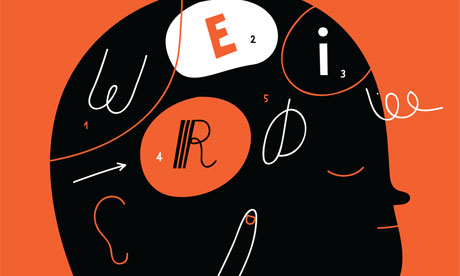
I'm usually distrustful of acronyms in psychology and self-help. What are the chances that a worthwhile theory will happen to spell out an apposite word? I can just about tolerate Julie Morgenstern's "Shed" philosophy of decluttering (Separate the treasures, Heave the trash, Embrace your identity, Drive yourself forward). But I draw the line at Tamara Lowe's "motivational DNA", which refers to each person's unique matrix of "drives, needs and awards": it's clear she means "rewards", but DNR stands for "do not resuscitate", which hardly befits a peppy motivational guru. Still, I'm giving a pass to the researchers Joseph Henrich, Steven Heine and Ara Norenzayan, authors of a new paper on Weird people – citizens, probably including you, of nations that are Western, Educated, Industrialised, Rich and Democratic. Almost everything experimental psychologists believe about the human mind comes from studies of the Weird. But perhaps you've guessed the problem: from a global standpoint, Weird people may be really... what's the word? Yes: odd.
As Henrich et al show, many phenomena we've assumed are universal probably aren't: we can only really say they're universal among Weird people, who make up 96% of subjects in behavioural science, or Americans, who make up 68%, and often only among US college students, who provide US researchers with a supply of guinea pigs. And the Weird, they say, "are particularly unusual compared with the rest of the species". In the "ultimatum game", for example, people are given $100 and told to offer some of it to someone else; if the other person accepts, each keeps their portion, but if they reject the offer, nobody gets anything. On average, Americans offer just under half, which seems to say much about human notions of fairness, or the fear of making an insultingly low offer. But many cultures behave differently; the Machiguenga of Peru prefer to keep more cash or, if on the other side of the deal, to accept whatever is offered. Another example: speakers of the Mayan language of Tzeltal are among several more likely to describe things as east or west of each other, not on the left or right. Academics would bristle, the researchers note, if journals were renamed with titles such as Journal of Personality and Social Psychology of American Undergraduate Psychology Students. But perhaps they should be.
This is more than a curiosity. In his book Crazy Like Us, Ethan Watters argues that American notions of mental illness are colonising the world, with a handful of diagnoses – depression, anorexia – squeezing out culturally specific ones. (Intriguingly, though, the Indonesian concept of "amok", combining brooding with murderous rage, is listed in the US psychiatric bible, the Diagnostic and Statistical Manual.) It's also a reminder that even if you are Weird, advice that's been "experimentally proven" has been proven for only the average person, who doesn't exist. These days, it's de rigueur to demand scientific evidence that a self-help or therapy technique works, and this scepticism is usually justified. But the life of the mind – your own, actual mind – is inaccessible to science, which must first translate it into something outward (questionnaire responses) or use an external indicator (behaviour), to produce population-wide generalisations. In psychology, what works for you may be very different from "what works". You may be Weird. But you're also – in ways no study could hope to grasp – uniquely weird.
oliver.burkeman@theguardian.com

